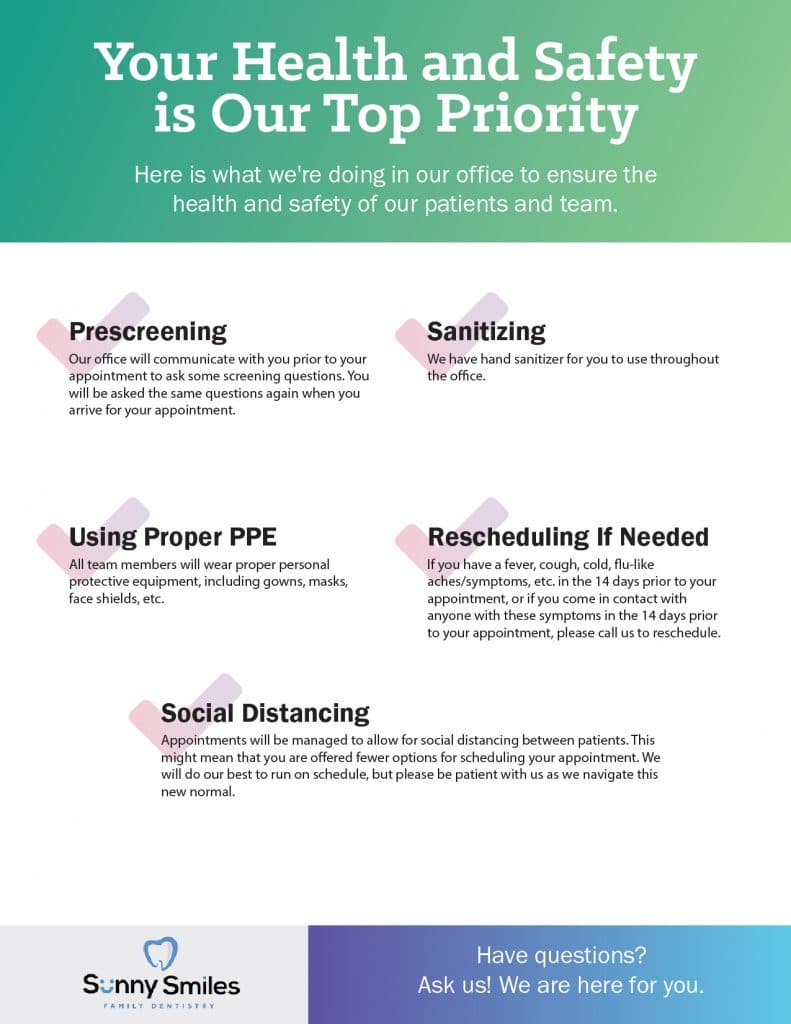 Cavity treatment removes infected and damaged portions of your tooth structure to stop decay from spreading further. While this stops the threat of more damage, it leaves your tooth weakened and vulnerable to new problems with infection. This is why permanent dental restorations are placed after treatment occurs. Dental fillings are used to restore teeth when smaller cavities are removed, but they are not always the recommended treatment. For more advanced decay, dental crowns are used. Crowns fully cover teeth above the gum line and provide more functional protection. This helps you avoid issues with damage and infection, and it will also enable you to keep biting and chewing without difficulty.
Cavity treatment removes infected and damaged portions of your tooth structure to stop decay from spreading further. While this stops the threat of more damage, it leaves your tooth weakened and vulnerable to new problems with infection. This is why permanent dental restorations are placed after treatment occurs. Dental fillings are used to restore teeth when smaller cavities are removed, but they are not always the recommended treatment. For more advanced decay, dental crowns are used. Crowns fully cover teeth above the gum line and provide more functional protection. This helps you avoid issues with damage and infection, and it will also enable you to keep biting and chewing without difficulty.
Placing A Dental Crown
Before a dental crown is placed, some preparatory work will have to occur to make space for the restoration. After removing excess enamel, there will be space for a custom crown that can stay secure and protect your tooth without affecting its neighbors. The process of fixing the crown in place ensures that it will remain set in the future. Before yours is made, your dentist will take measurements of the tooth that are used to determine its dimensions.
What Will My Crown Look Like?
Different material types are used to create dental crowns for patients. If a back tooth is restored, we can use a metal crown to provide lasting protection against more significant bite forces. For teeth that are closer to the front of your smile, a lifelike restoration made from ceramic or zirconia will mimic your enamel. This can ensure that a tooth’s appearance is preserved even as it is covered and protected.
Why You Might Need Root Canal Therapy Before Receiving Your Crown
A cavity needs to be completely treated to stop the further spread of decay. In some cases, this means your dentist must perform a root canal treatment to remove bacteria and damaged tissues within a tooth. Root canals are used for teeth that have become infected due to decay, and for injured teeth. Once this work is complete, you can receive your crown. To avoid advanced cavities, be consistent with your dental exams. Every routine checkup is an opportunity for your dentist to check your smile for evidence of decay. You can have a tooth restored when a cavity is still too small to cause discomfort or make internal infection a concern!
Talk To Sunny Smiles If You Need Cavity Treatment
Our dentist’s office is ready to help people in and around El Paso, TX recover from cavity troubles. When necessary, we can actually restore teeth with durable dental crowns that protect vulnerable teeth and restore a person’s appearance! To learn more, please contact Sunny Smiles in El Paso, TX by calling 915-859-7000.




